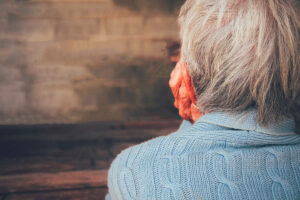
There are various types of elder abuse to be aware of. Some senior abuse is overt or physical, while other types are less noticeable, such as nursing home malpractice, financial manipulation, and more. Nursing homes are liable for any failure to meet a high standard of care for their elderly residents. If you or a loved one is experiencing senior abuse, you’ll want to seek the help of an experienced elder abuse attorney in New York who may be able to get you the compensation you’re entitled to.
What Is Elder Abuse?
According to the National Institute on Aging, elder abuse is any offense that leads to actual or potential harm to a senior either emotionally, physically, mentally, or financially. As elderly adults start becoming frailer, they start to become less capable of taking care of themselves or standing up to those that may bully them.
This makes elder abuse unfortunately all too common in some nursing homes or other assisted living areas. There are several broad senior abuse categories, particularly in these nursing homes. These can include neglect, mental or emotional abuse, financial abuse, or false imprisonment. It’s important to know what to look out for if you suspect a loved one has been experiencing elder abuse.
Seven Signs or Indications of Elder Abuse and Neglect
The National Council on Aging also states that around 10% of the U.S. population that is 60 or older unfortunately experience some type of abuse every year.
Many individuals put their senior loved ones in nursing homes so that they can receive the best care possible. However, in some cases, elderly residents end up suffering neglect and abuse instead of receiving affection and care. Recognizing the common signs and symptoms of elder neglect and abuse is key to making sure your senior loved ones are receiving the best care possible.
1. Changes in Emotional or Mental State
Elderly individuals who sustain emotional or mental abuse frequently become depressed or withdrawn, or have unexplained changes in activity level and alertness.
2. Unexplained Injuries
Broken bones, bruises, pressure marks, burns, and lacerations without an obvious cause can be a clear indication of physical abuse or mistreatment.
3. Unattended Personal Needs
Unaddressed medical needs, poor hygiene, severe bedsores, unusual weight loss, and soiled clothing are also common signs of potential abuse or neglect.
4. Unexplained Financial Changes
Nursing home employees, loved ones, caregivers, or other financial abusers may attempt to encourage elderly individuals to alter a will to include them, make them an authorized signer on bank accounts, or to use their ATM cards for unapproved purchases.
5. Verbal Abuse
Emotional or verbal abuse could be taking place if a nursing home employee or caregiver is belittling or threatening a senior resident.
6. Unsafe or Hazardous Living Conditions
No heat, improper wiring, and no running water are examples of unsafe or hazardous living arrangements or conditions.
Contact Our Experienced New York Elder Abuse Lawyers at Dalli & Marino, LLP Today
If you or a loved one is being abused in a New York nursing home or from another caregiver, our compassionate team of experienced personal injury lawyers at Dalli & Marino, LLP are here to help. We’ll do our very best to fight for the compensation and justice you are entitled to.
Nobody deserves to be neglected or abused because of their age or vulnerability. At Dalli & Marino, LLP, we’re here to be your advocate and put control back into your hands. Call our English- and Spanish-speaking offices today at (888) 465-8790 or fill out our contact form to speak with one of our highly-skilled senior abuse attorneys about getting the compensation you may be entitled to.


